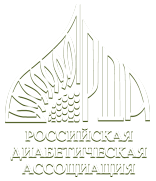
|
 |
 |
 |
 |

|
 |
Закусывайте морскую рыбу красным, а не белым – Школа РДА им. Эрнесто Рома рекомендуетЦентр помощи РДА - 10.07.2017 13:51
В соответствии с появившимися новыми данными, указывающими на то, что микробиота (совокупность микроорганизмов в организме человека) кишечника человека вырабатывает активнейшие регуляторы (ТМАО), являющиеся ключевыми факторами для развития атеросклероза с последующими инфарктами, инсультами и прочими сердечно-сосудистыми неприятностями, современному человеку предпочтительно сократить потребление красного мяса и увеличить потребление океанической и морской рыбы. Рыба положительно влияет на работу микроорганизмов в организме человека, предотвращающих сердечно-сосудистую заболеваемость и смертность. Ресвератрол – компонент красного вина, после его назначения подопытным мышкам, которым давали съесть холин, вещество способствующее появлению атеросклероза, снижал содержание ТМА (триметиламина) и ТМАО (триметиламина-N- оксида) в крови этих животных на 1, 2, 4, 6, 8 часах после потребления вредного компонента. ТМА и ТМАО вырабатываются не организмом человека, а микроорганизмами в теле человека. Откуда был сделан вывод, что эта антиатеросклеротическая порода микробов в кишечнике человека предпочитает красное вино белому. Конечно с дозой красного тоже нельзя злоупотреблять.
Ссылки на первоисточники: 1) 09.07.2017 Red wine may offer heart protection by altering gut microbiome: Study AD What’s hot in botanicals? Meet leadings brands in botanicals, scientists, and market experts HERE. By Will Chu 07-Apr-2016 Last updated on 15-Apr-2016 at 10:08 GMT A compound found in red wine may reduce the risk of heart disease by changing the gut microbiome, according to a study. The study focused on the mechanisms responsible for resveratrol’s anti-atherosclerosis effects via the microbiota. Cardiovascular disease remains the leading cause of death in industrialised societies within Europe with the incidence also growing in developing countries. Statistics presented over the last 2 years report that CVD is also the most common cause of death among Europeans and despite steady decreases in CVD mortality rates across the continent, more than four million Europeans die of CVD every year. An increasing body of research has pinpointed the gut microbiome as central to the build-up of artery plaque. Equally, research has identified resveratrol - a polyphenol found in red wine – as having antioxidant properties that protect against conditions such as heart disease. Despite the quantity of studies its mechanism of action remains unclear. Gut microbiome’s role Scientists from the Research Center for Nutrition and Food Safety, in Chongqing, China, used mice models to investigate whether resveratrol’s protective effect against atherosclerosis was linked to gut microbiome changes. Here trimethylamine (TMA) and trimethylamine-N-oxide (TMAO) levels were measured at 0, 1, 2, 4, 6 and 8 hours after administration of a single dose of the nutrient choline (400 mg/kg of body weight) or TMA (40 mg/kg) in mice. Choline has been strongly linked in the development of atherosclerosis. They found that resveratrol reduced levels of TMAO, another contributor to the development of atherosclerosis. They found that resveratrol inhibited TMA production. TMA is necessary for the production of TMAO. "We found that resveratrol can remodel the gut microbiota, inhibiting the growth of Prevotella, and increasing the relative abundance of Bacteroides, Lactobacillus, Bifidobacterium, and Akkermansia in mice," said Dr Mantian Mi, principal investigator of the study. "Resveratrol reduces TMAO levels by inhibiting the gut microbial TMA formation via remodelling gut microbiota." According to Mi, the natural origins of resveratrol means there are no side effects associated with pharmacological therapies for cardiovascular disease. Resveratrol may also be a good candidate as a prebiotic and could be used to promote the growth of beneficial bacterium offering a wealth of health benefits to the host. Previous TMAO & resveratrol studies Previous studies have identified TMAO as inducing atherosclerosis by affecting cholesterol metabolism through inhibiting hepatic bile acid synthesis. Recently, the gut microbiota has been implicated in hepatic bile acid synthesis Investigations into resveratrol’s properties have confirmed that a polyphenol-rich cranberry extract combined with metformin weakened diet-induced metabolic syndrome in mice in a gut microbiota-dependent manner. Resveratrol’s consumption has also been found to control the growth of certain gut microbiota in vivo, including the growth of Bacteroides, Lactobacillus, and Bifidobacterium. Given the strong relationships between TMAO levels and gut microbiota, the researchers hypothesised that resveratrol weakened TMAO-induced atherosclerosis by regulating TMAO synthesis and via the gut microbiota. “These results open a new avenue of research regarding the potential cardiovascular protective effects of resveratrol and indicate that the gut microbiota may become an interesting target for pharmacological or dietary interventions to decrease the risk of developing CVD,” the authors concluded. Source: mBio Published online ahead of print, doi: 10.1128/mBio.0221015 “Resveratrol Attenuates Trimethylamine-N-Oxide (TMAO)Induced Atherosclerosis by Regulating TMAO Synthesis and Bile Acid Metabolism via Remodeling of the Gut Microbiota.” Authors: Ming-liang Chen, Long Yi, Yong Zhang, Xi Zhou, Li Ran, Jining Yang, Jun-dong Zhu, Qian-yong Zhang, Man-tian Mi
2) By Nathan GRAY 09-Dec-2016 Switching red meat for vegetables or potatoes could significantly lower your risk of myocardial infarction, but swapping out fatty fish for veggies could increase your risk, say researchers. The study, published in the British Journal of Nutrition, was set up to test how substituting red meat, poultry and fish with with vegetables or potatoes influenced the prevention of myocardial infarctions (heart attacks) in a group of more than 55,000 men and women taking part in the Danish Diet, Cancer and Health study. Led by PhD candidate Anne Würtz from Aarhus University in Denmark, the team found that it made little difference whether items being switched out of the diet were replaced with vegetables or potatoes. “This study suggests that replacing red meat with vegetables or potatoes is associated with a lower risk of myocardial infarctions (MI), whereas replacing fatty fish with vegetables or potatoes is associated with a higher risk of MI,” wrote the team. Earlier this year, researchers from the University of Leicester linked the consumption of red meat with an increased risk of acute heart failure, with the findings backing up previous studies that suggested consumption of red meat leads our gut bacteria to increase levels of a potentially dangerous metabolite called trimethylamine N-oxide (TMAO), which has been linked to heart failure and worse long-term prognosis. Meanwhile a raft or research has linked marine-sourced long-chain omega-3 fatty acids, which are present in high levels in fatty fish, with lower cardiovascular risks – and as such could help save the EU almost €13 billion in cardiovascular disease healthcare spending. Study details Würtz and colleagues investigated substitutions of red meat, poultry and fish in a population of 29,142 women and 26,029 men in the Danish Diet, Cancer and Health study. All women and men were aged between 50 and 64 years with no known history of MI at baseline. “Diet was assessed by a validated 192-item FFQ at baseline,” said the team – noting that adjusted Cox proportional hazard models were used to calculate hazard ratios (HR) and 95 % CI for MI associated with specified food substitutions of 150 g/week. During the average follow-up of 13•6 years, the team identified 656 female and 1,694 male cases of myocardial infarction. “Among women, the HR for MI when replacing red meat with vegetables was 0•94,” they said. “Replacing fatty fish with vegetables was associated with a higher risk of MI (HR 1•23).” Furthermore, an inverse, but statistically non-significant association was found for lean fish, they said. “Substituting poultry with vegetables was not associated with risk of MI.” Source: British Journal of Nutrition Volume 116, Issue 9 November 2016, pp. 1602-1610, doi: 10.1017/S0007114516003500 “Substitution of meat and fish with vegetables or potatoes and risk of myocardial infarction” Authors: Anne M. L. Würtz, et al |
|||
| © МОО «Российская Диабетическая Ассоциация» Привет,
Агент #671 Допускается цитирование оригинального материала, с обязательной прямой гиперссылкой на страницу, с которой материал заимствован. Гиперссылка должна размещаться непосредственно в тексте, воспроизводящем оригинальный материал РДА, до или после цитируемого блока. |
|
 Youtube
Youtube
 Telegram
Telegram

.png)






































 Вопреки обще распространенным заблуждениям о сочетаемости мяса с красным вином, а рыбы с белым исследования последних двух лет 2016 – 2017 показывают противоположное.
Вопреки обще распространенным заблуждениям о сочетаемости мяса с красным вином, а рыбы с белым исследования последних двух лет 2016 – 2017 показывают противоположное.
